Seeking Petrol For The End Of Lake Kariba

Driving in Africa is a different experience. When I take a look at GoogleMaps everything is flat and roads are solid lines. It gives off the impression of “ah, this will be a piece of cake!”
That is a serious misconception.
Sitting comfortably at a lodge in Victoria Falls we knew it was time for an adventure in the African bush. The goal of this particular journey was to drive around the fourth largest man-made lake in the world, Lake Kariba. We would be traveling through Zimbabwe. The drive would take us roughly 800 kilometers and there was no guarantee we’d find petrol in route.
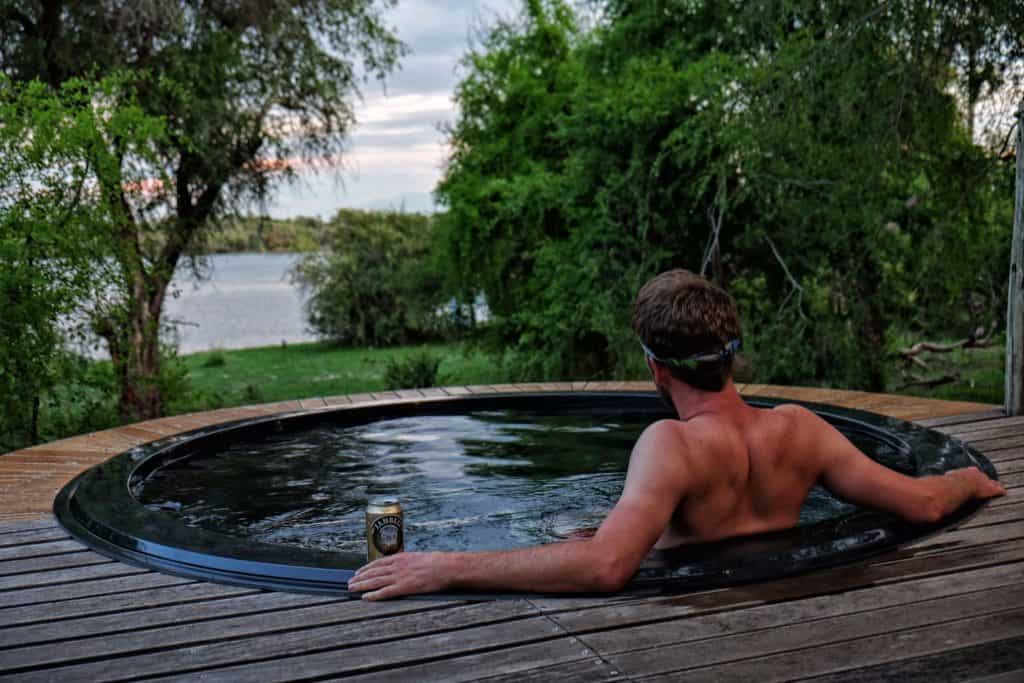
Driving Around Lake Kariba
Thanks to some assurance from a Zimbabwean bush veteran that “if there is a will there is a way,” we set off. The next day, in an effort to avoid the dreaded police road blocks of Zimbabwe, we took the backroads only 10km outside of Victoria Falls.
And the state of the roads deteriorated. Rapidly.
Driving down single track dirt roads and passing through rural villages we were in the midst of the real overland journey. In rural Africa, there aren’t many vehicles driving around on a daily basis. So, once we had turned off the main road out of Victoria Falls we were completely on our own. There was no AAA, mechanics, fuel stations, hotels, or even cell reception.

Our first day we were set on making it to the biggest town on the Southern edge of the lake, Binga. When we pulled in after six hours of dirt roads and found nothing more than a few concrete buildings, guesthouses, one garage, and one gas station we realized just how remote we were.
One hour of driving around town and not finding petrol we at least found a home. Masumu Lodge was luxury compared to our other options around Binga. We set up camp, made dinner, and threw on a movie before going to bed and mentally prepping for another long drive. The next day was going to be a tough push as we had to descend a mountain and leave the main dirt roads behind.
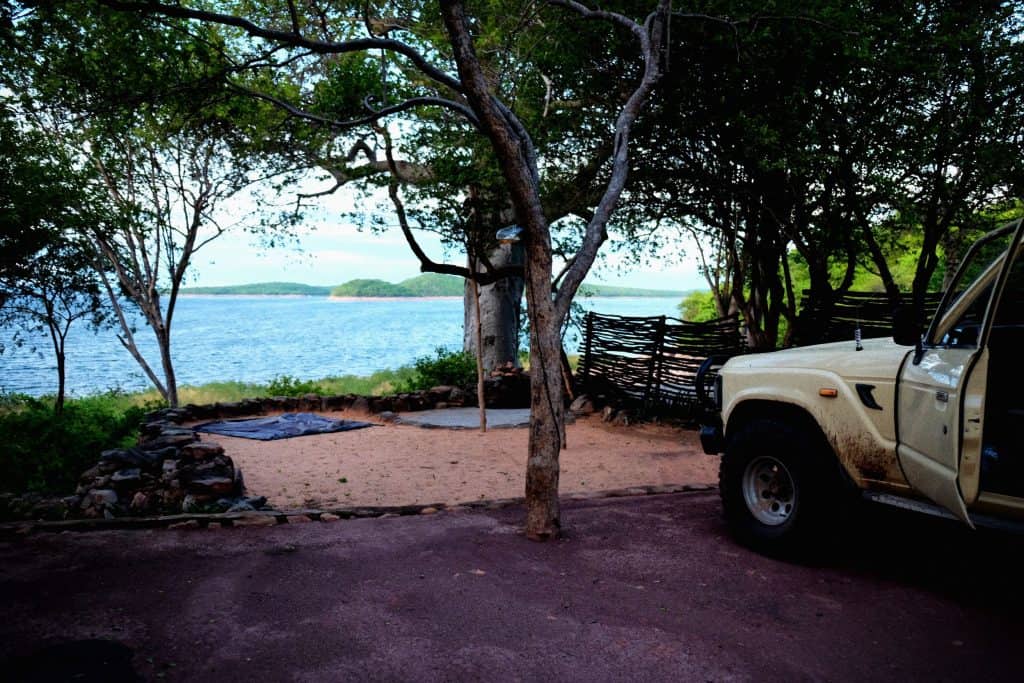
Zimbabwe was turning out to be as difficult and a pain in the ass as we had been warned. Some South African’s had even gone so far as to outright tell us we shouldn’t go.
“You won’t have a good time.”
However, with a bit of grit, we took on the day hoping to prove them wrong. And it was one of the most beautiful days we’ve had in Africa. The valleys that surround Lake Kariba are nothing short of ancient and magical.

The day started winding through remote villages on single track roads. Along the road were villagers who would stop and stare or simply smile and wave. It was all captivating and we felt that for the first time in a while we were exploring new depths of Africa. The route, to say the least, is not popular.
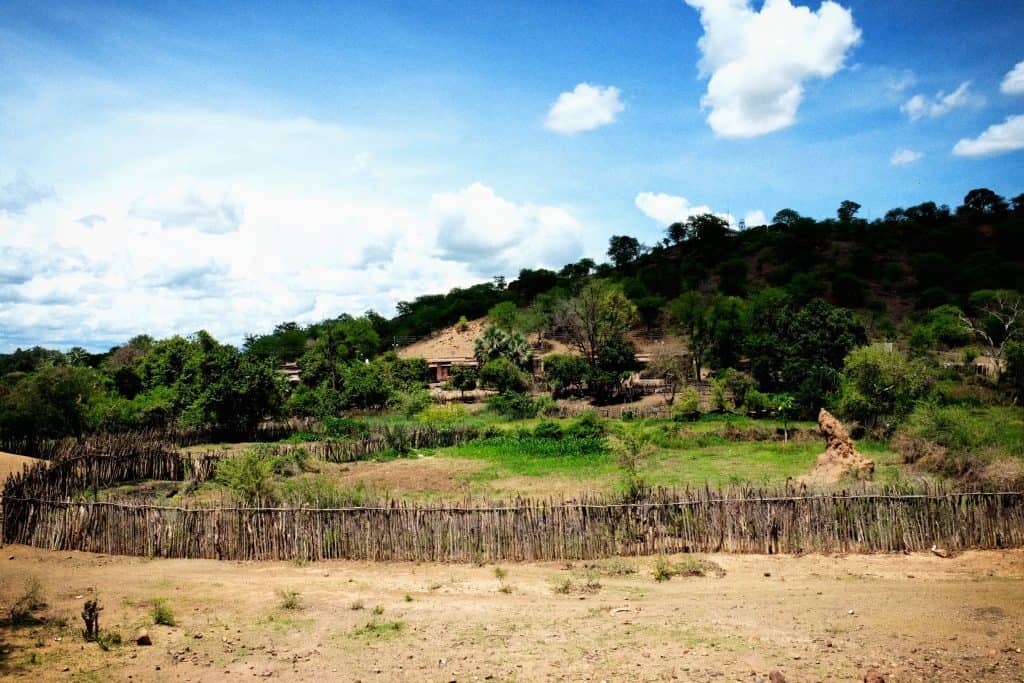

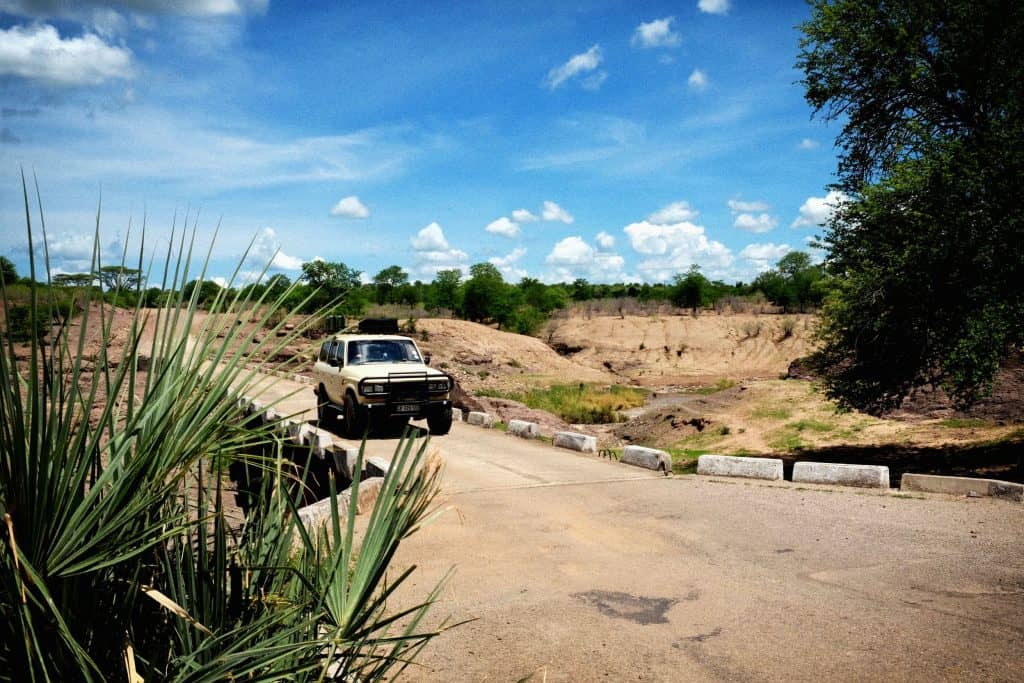
The roads are badly corrugated and have massive ruts at points. Being only rookies at Overlanding we had not done a proper packing of the car. The result was all of our stuff was given a proper “African massage,” as it was thrown around the cab. The sound of a soda spraying across the back after a large bump was the icing on the cake.

As the rains had finally arrived in this region of Zimbabwe we found rivers overflowing, sections of the road missing, and a sea of lush green forest. The woodland was alive and we were right in the thick of it. We continued our descent and after seven hours on the dirt roads we pulled in Musango Safari Camp and breathed a deep sigh of relief.

There was only one small problem. We didn’t have enough fuel to finish our journey, to be sure we’d make it we would need roughly 60L of fuel.
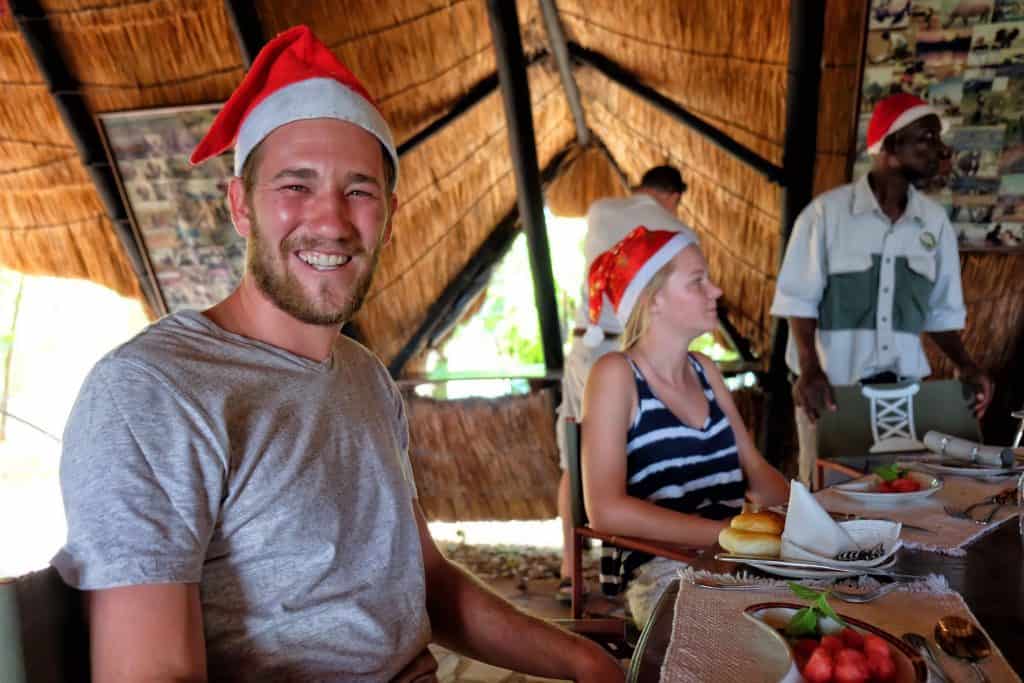
Using the bush network our hosts, Steve and Wendy, went about getting us some fuel. We got lucky and on Christmas day our fuel was delivered to us via speed boat from the neighboring crocodile farm. The fuel came in at the low price of $2 a liter or $120 for 60L of fuel. To put this in terms American’s will understand we paid $7.63 a gallon. Think about that the next time you complain about fuel prices.
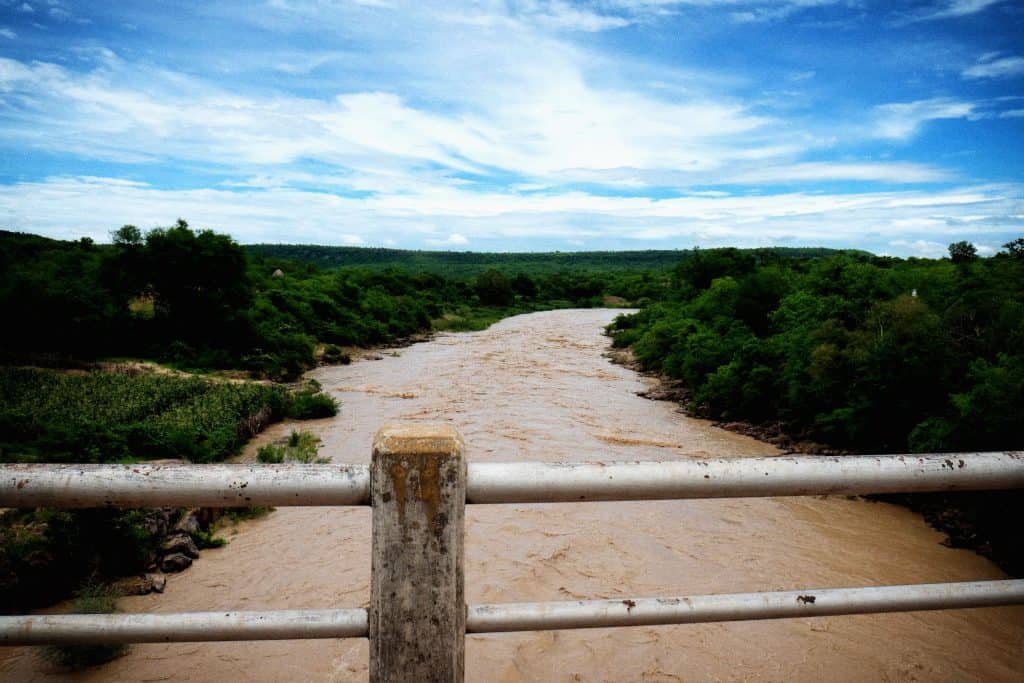
The drive out from Musango brought about new challenges. The night before heavy rains had occurred and the roads subsequently turned to mud. We climbed about 800m up the mountain and crossed sections where the road had disappeared. Other sections were hastily being replaced by locals with rocks, makeshift dams, and wood.
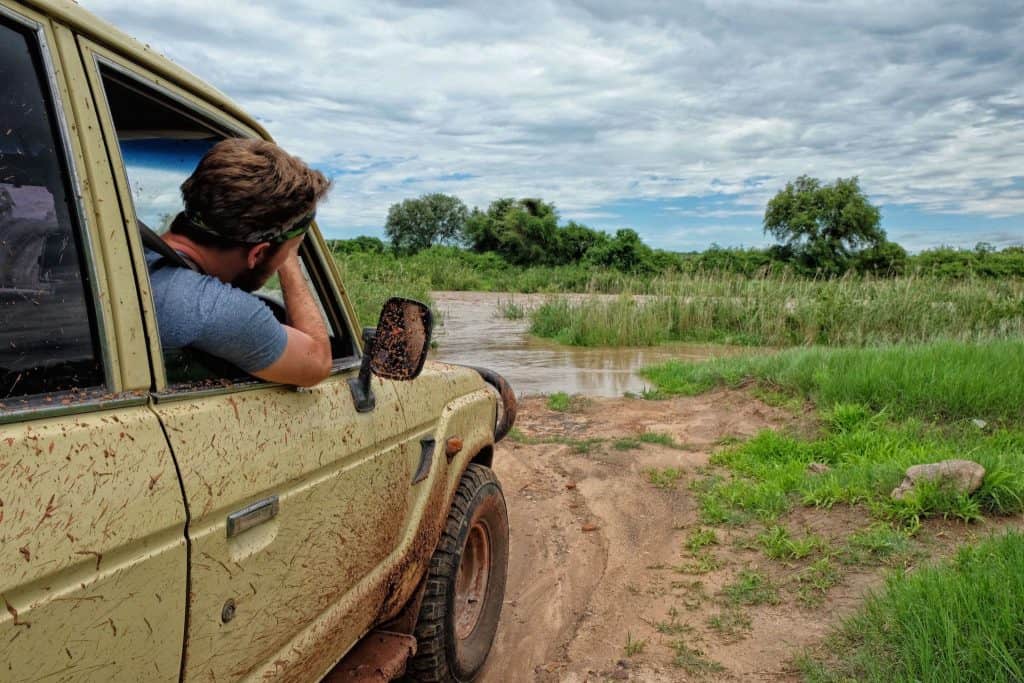
We pressed on and Charlie was working hard to get us around the lake. The road network gradually improved as we made it around the lake and grew closer to the dam. We crossed through the Charara wilderness area in Zimbabwe and found impala grazing along the road, baboons, lots of birdlife, and eventually came to a dead stop when two elephants greeted one another in the middle of the road.
We were in the Africa we dreamed of.

When we pulled into the small town of Kariba we had driven another nine hours on the worst roads (but most beautiful) we had experienced in Africa. We set up camp along the banks for one last night on Lake Kariba. Then went to the campsite bar for some Zambezi lagers, beef stew, sadza, and relish. This is the perfect meal to end a trip in Zimbabwe.
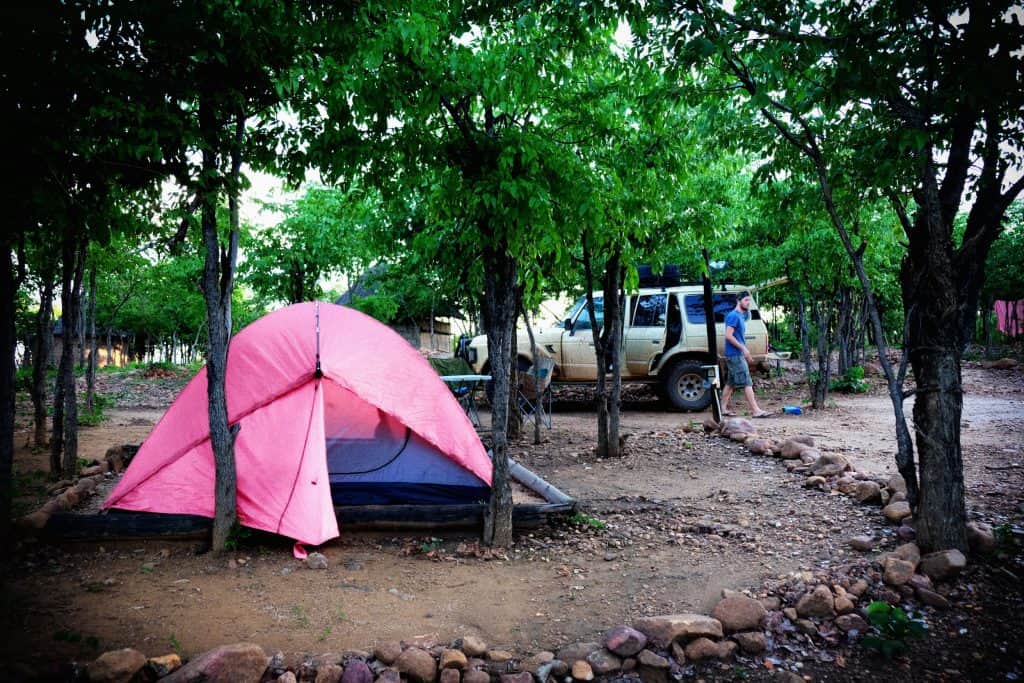
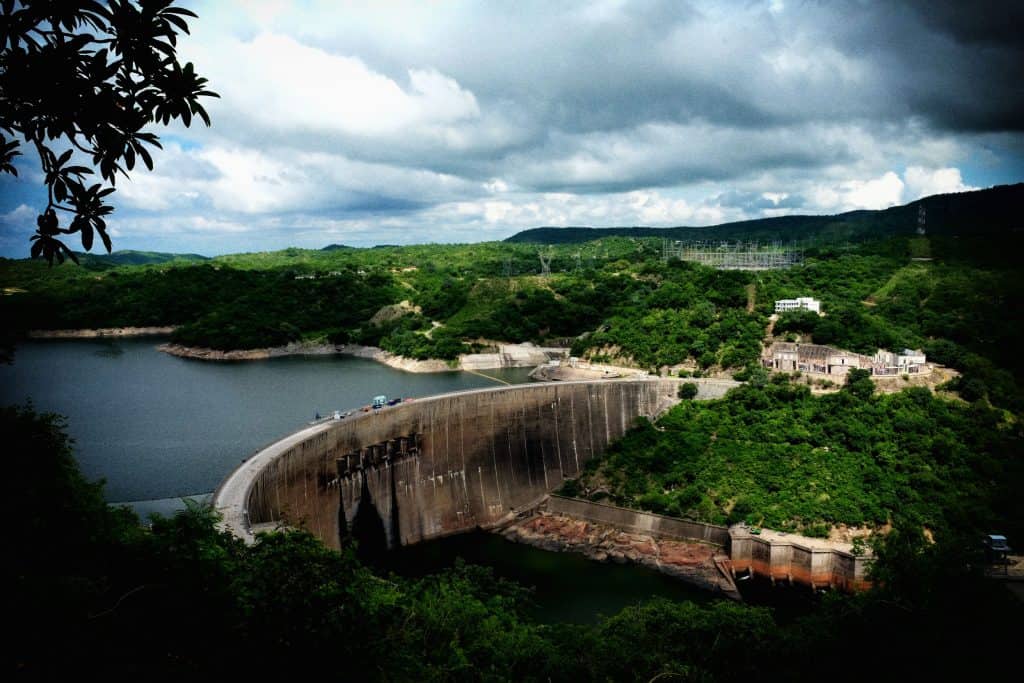
Plan Your Trip to Africa
- Travel Insurance: We don’t travel without travel insurance and neither should you. You never know what can happen while traveling so it’s best to be prepared. HeyMondo provides excellent short-term and long-term travel insurance plans.
- Travel Waterbottle: When we’re uncertain about the water supply we use our Grayl Purifier. It’s come in exceptionally handy around Africa.
- Camera Gear: Chances are you’ll want a camera for your trip to Africa. We love the Sony RX100V for a pocket-size camera and the Fujifilm XT-4 for a professional camera. Check out our favorite cameras for Africa.
- Safari Clothes: Lightweight, beige, and moisture-wicking clothing are great for traveling Africa. See our favorite safari clothing here.
- Safari Hat: A good hat is both stylish and functional.
- Safari Bag: A durable bag is ideal for traveling around Africa.
- Safari Pants: We recommend neutral-colored pants as they’re great at hiding dirt and can match most shirt colors.
- Safari Shirt: Shirts like these are lightweight and keep the bugs away!
- Boots: While you don’t need to wear sturdy shoes every day, at least one pair of safari boots will make your trip nicer!
- Travel Adapter: You’ll need a special travel adapter for traveling to Africa. Get one before you get there so you don’t pay a premium on the ground.

